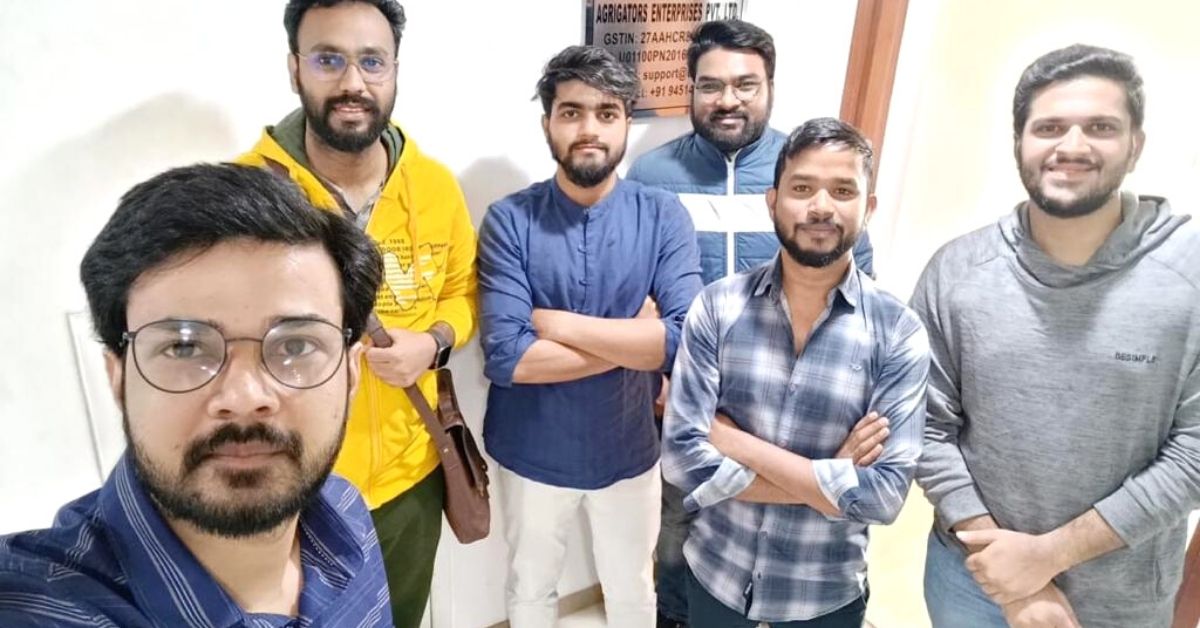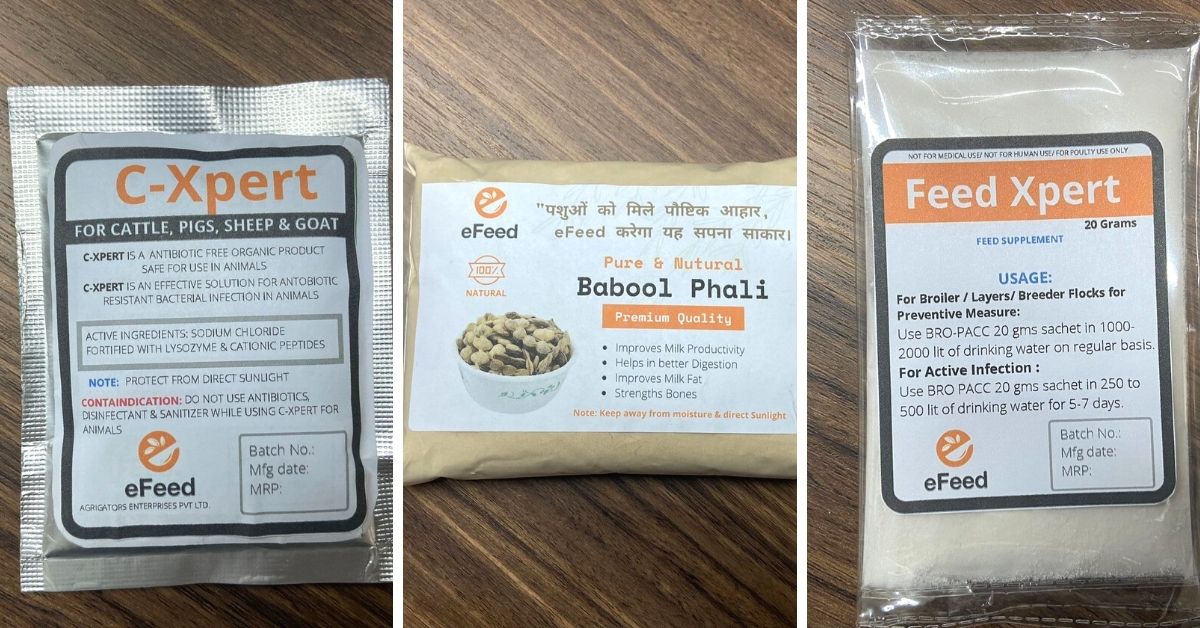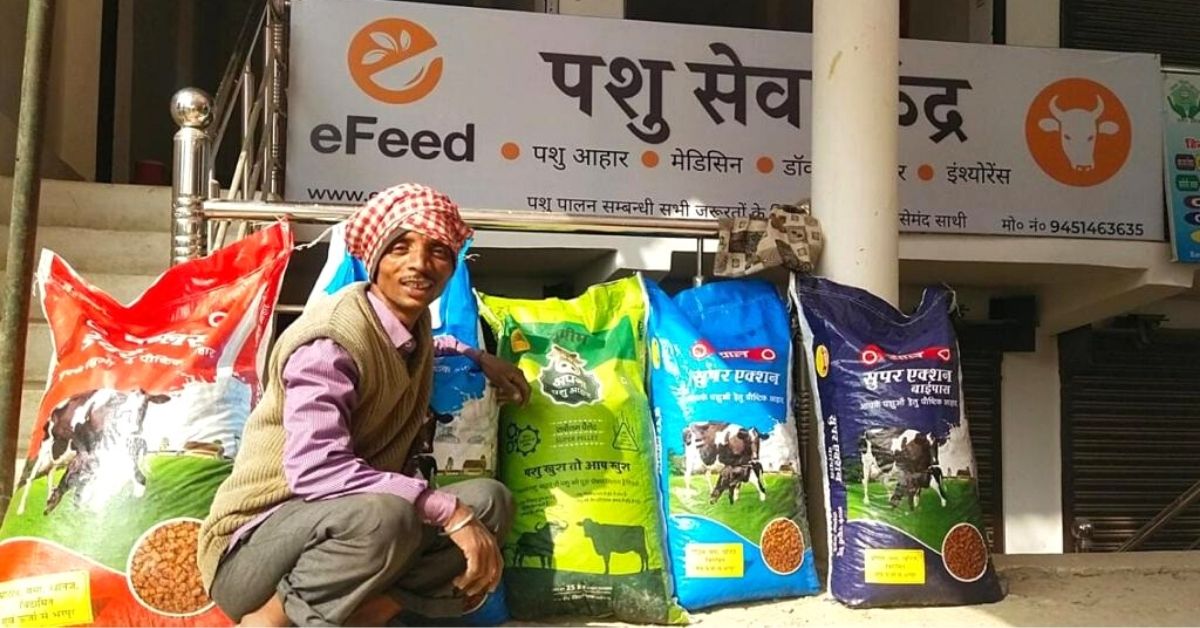Bengaluru-born Kumar Ranjan had always wanted to build a career that would catapult societal impact in some form.
He spent seven years working in the automotive industry, building innovative technologies and making autonomous vehicles. Then, he switched briefly to the electric vehicle industry. But neither could help him reach where he wanted to be — creating sustainable impact with his work.
In the early phases of COVID-19, a chance to create this impact came when he met a few poultry farmers to understand the gaps existing in the agricultural sector.
“My father works in a company that helps farmer and agricultural students start their own businesses, which is funded by NABARD. As part of it I delivered lectures in 2018-19 to guide students in becoming agri-entrepreneurs,” Ranjan says.
With this understanding, Ranjan launched his startup E-Feed, which he says has benefitted over two lakh farmers by reducing their losses and increasing their income. The app works like ‘HealthifyMe’, but for animals, to chart out their dietary requirements and prepare meal plans accordingly.
A diet consultant for animals

“In the early half of 2020, a friend introduced me to poultry and cattle farmers,” he recalls, adding that he learnt how the farmers were earning little return on investment for their cattle, which was producing less milk. “The average yield of an Indian cow is expected to be 15-20 litres a day. But in reality, it delivers less than 15 litres. This is because farmers do not often provide adequate nutrition to the cattle.”
The 30-year-old also observed that farmers were leaving cows at their own mercy to fetch food, or providing them with fodder without considering its nutritional value.
“Animal nutrition is neglected, and farmers do not discuss it with one another. We educate them to understand the nutrition requirements of cattle, like protein and fat. These are crucial elements that determine and ultimately help improve the health of cattle, thereby increasing productivity,” he says.
He adds that inadequate and improper diets lead to excess methane emissions from cattle. “Methane is a greenhouse gas that contributes to climate change. Animals emit the gas due to indigestion and improper food. India has one of the largest cattle populations in the world, thus making it a significant emitter. Nutrition improvement and effective diet can significantly reduce this,” he says.
Similar issues affect the poultry and aqua industries in India, he says.
“The poultry industry is undergoing similar struggles. For example, there is hardly any traceability of the nutrition value of poultry. It is fed with heavy antibiotics and steroid doses for faster growth. A 20-day-old chicken puts on about 1.5-2 kilos in 45 days. The dietary stress they undergo is unimaginable. Humans consuming them for nutritional value also ingest toxic chemicals in their system, which defeats the purpose,” he says.
He adds, “In the aquaculture sector, excess or improper fodder leads to the formation of green algae-like layers on water, due to increase in the ammonia proportion. Excess ammonia often leads to infection in fish, resulting in the mortality rate to shoot up.”

There was thus a need to emphasise on nutritional value and health of animals, and Ranjan decided to offer a solution. “The app functions by analysing the nutritional requirements of poultry, cattle and aquatic animals, and customises a programme to fulfil dietary needs,” he explains.
The first step requires reaching out and creating awareness among farmers to help them understand the concept of cattle nutrition. Suggestions on the interventions needed are offered by analysing the health of a farmer’s cattle. Once the recommendations are shared, the farmer can source the raw materials to prepare the food from his farm, local shops, or procure products formulated by the startup, which are available at their flagship stores.
Ranjan says that his technological interventions and precise dietary fulfilment have benefitted 1 lakh aquaculture, 70,000 poultry, and 50,000 farmers across India. “We educate them at our stores, located in Uttar Pradesh, Chhattisgarh and Karnataka. Here they learn to use the products and our app. The visible results from farmers have been inspiring,” he says. In December 2021, E-Feed, which has five partners, presented their business model on Shark Tank India.
Dr Chaitali Mathew, a farmer from Durg, Chhattisgarh, says, “The app helps with in-depth information. As I am new in the field of aquaculture, the practical tips and applications are useful. The company’s products perform better when compared with others in the market. The experts at the startup help me learn about the feed and nutritional content.”
Dr Chaitali says her losses in fish farming have reduced by 30 per cent, and the fish’s health and body weight have improved. Her total monthly profits have increased by 50 per cent, she adds.
Meanwhile, Brijesh Yadav from Gaur village in Uttar Pradesh, says the productivity of his cattle in the past seven months has “increased impressively”. “Earlier, my cow produced milk of about 2.5 litres. Using E-Feed’s products and customising my cattle’s diet has helped improve milk production to 4 litres. The additional benefit is that my cattle have become more immune to diseases. A few months ago, the Chakota disease spread among cattle in our village, but mine remained safe from it. Their improved health has reduced my monthly expenses by 25 per cent,” he adds.
For every farmer

“Such technologies are adopted by corporates and mass scale cattle industries, but remain inaccessible for small scale farmers,” Ranjan says. “But the app can change that. Farmers no longer have to buy expensive feed and can customise it themselves at their farm,” he says.
Of the challenges of undertaking this journey, Ranjan says, “I had no background in the field, and had to learn everything from scratch. It was also hard to build an able team for execution. Moreover, farmers needed to be convinced to take animal nutrition seriously.”
He adds, “Farmers expect instant gratification, and unfortunately, it is not possible in terms of animal nutrition. For example, they use urea to increase milk production in a cow, which delivers results overnight. Those using steroids see immediate results, and expect the same from our products. But such methods are toxic and harmful for animals and humans alike. It took time and effort to explain and help farmers understand the true essence of animal nutrition.”
Ranjan feels that apart from the farmers, consumers also need to become sensitive when it comes to consuming meat and dairy. “There is increasing awareness of organic food and plants. And it is time people start caring about dairy and meat. It is only then that farmers producing quality products will receive deserved value,” he adds.
Edited by Divya Sethu
No comments:
Post a Comment